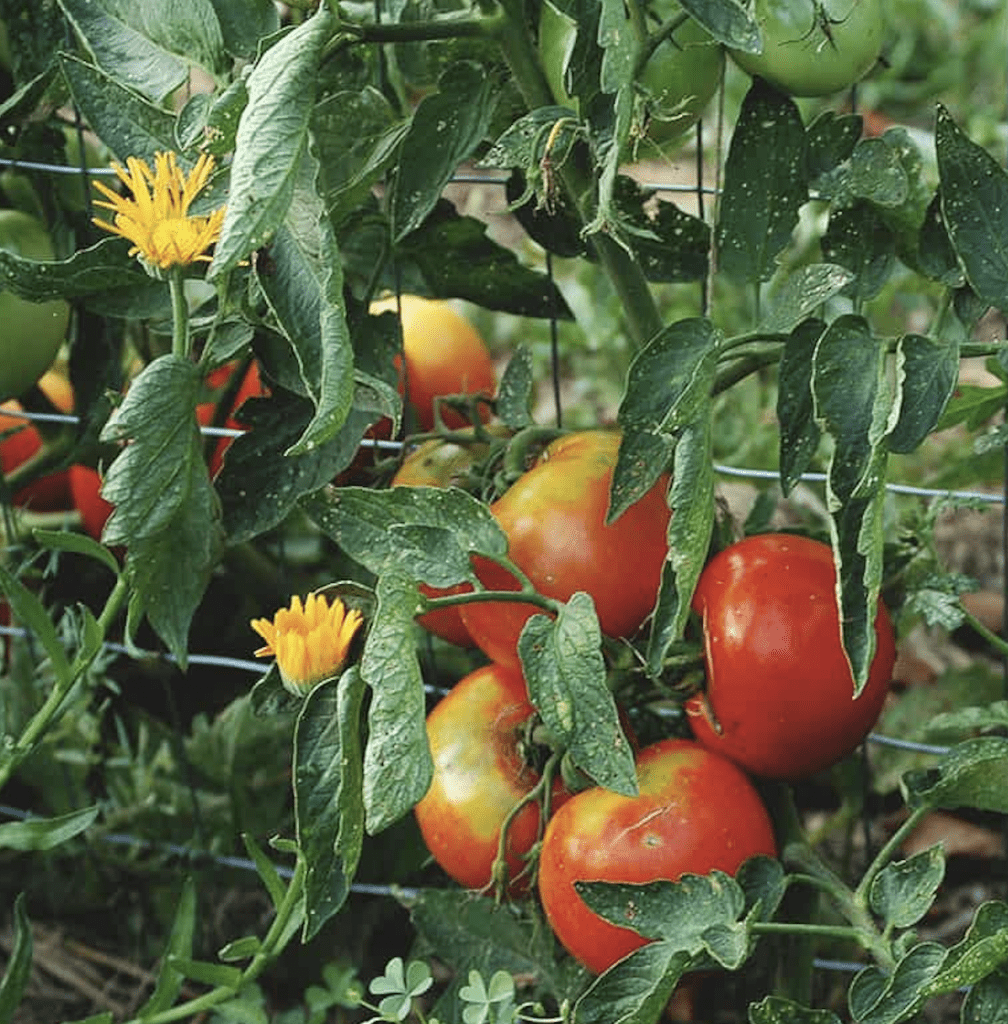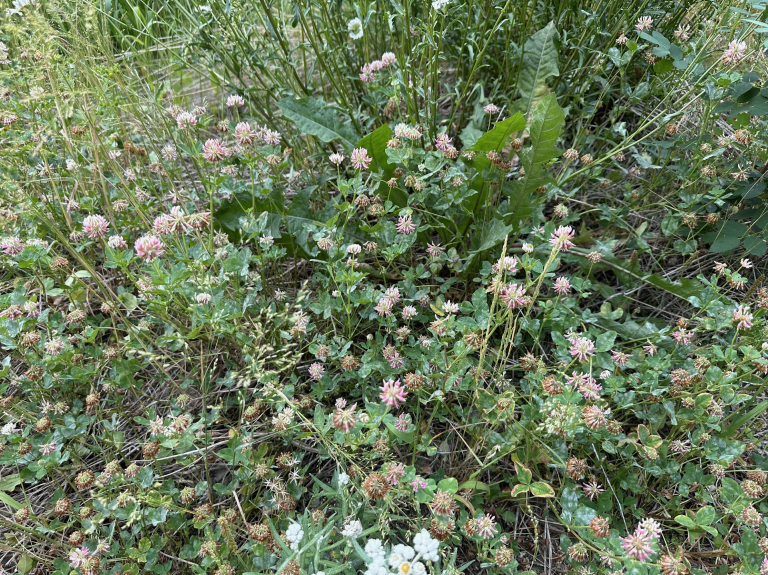Companion planting is a natural and sustainable gardening technique that involves planting different types of crops together to provide mutual benefits. Companion plants can help deter pests, attract beneficial insects, improve soil health, and even enhance the flavor of the main crop.
Here are some companion plants that can be grown alongside organic tomatoes outdoors in Canada:
Basil: This herb is a great companion plant for tomatoes because it repels pests like tomato hornworms and whiteflies. It also improves the flavor of the tomatoes.
Marigold: Marigolds have been known to repel nematodes, aphids, and whiteflies, making them a good companion for tomatoes. They also attract beneficial insects like ladybugs and lacewings.
Nasturtium: Nasturtiums are another great companion plant for tomatoes because they repel aphids, whiteflies, and squash bugs. They also attract beneficial insects and add a pop of color to the garden.
Chives: Chives are a member of the onion family and are said to repel aphids and spider mites. They also improve the flavor of the tomatoes.
Borage: Borage is a good companion plant for tomatoes because it attracts pollinators and repels tomato hornworms and cabbage worms. It also has deep roots that help improve soil health.
Carrots: Carrots are a good companion plant for tomatoes because they have deep roots that help break up soil and improve drainage. They also attract beneficial insects like parasitic wasps and lacewings.
Dill: Dill is a good companion plant for tomatoes because it attracts beneficial insects like parasitic wasps and hoverflies. It also repels tomato hornworms and aphids.
Parsley: Parsley is another herb that can be grown alongside tomatoes. It attracts beneficial insects and has deep roots that help improve soil health.
Calendula: Calendula is a good companion plant for tomatoes because it repels aphids, whiteflies, and tomato hornworms. It also attracts beneficial insects and adds a pop of color to the garden.
Comfrey: Comfrey is a perennial herb that has deep roots which can help bring up nutrients from deep in the soil and make them available to the tomatoe plants. It’s also rich in potassium, phosphorus, and other minerals, which can help improve soil fertility.
Remember that not all companion plants will work for every garden and that experimentation may be needed to find the best combinations for your specific location and climate.
Here are a few reasons why companion plants are important for growing organic tomatoes:
Pest control: Certain plants can help repel pests that are harmful to tomato plants. For example, marigolds are known to repel nematodes, while basil can help deter tomato hornworms.
Nutrient uptake: Some companion plants have deep roots that can help break up soil and bring up nutrients from deeper layers. For example, legumes like clover or beans can fix nitrogen in the soil, which can benefit tomato plants.
Pollination: Some companion plants can attract pollinators, which can help improve fruit set and overall yield. For example, planting flowers like borage or calendula can attract bees and other pollinators to your tomato plants.
Biodiversity: Companion planting can help promote biodiversity in your garden, which can improve overall soil health and reduce the risk of disease and pests.
Overall, by using companion planting strategies in organic tomato farming, you can create a more diverse and balanced ecosystem in your garden, which can lead to healthier, more productive tomato plants.
Wild Bluebell Homestead is a charming hobby farm located in Abbotsford that offers a range of hand-made artisanal products, curated vintage furniture, sourdough bread, and other homemade items. The homestead is dedicated to creating unique and high-quality products that are beautiful, functional, and long-lasting, plus each item is carefully crafted with attention to detail. Customers can expect a warm and welcoming experience and a range of products that are perfect for adding a touch of rustic charm to any home.























